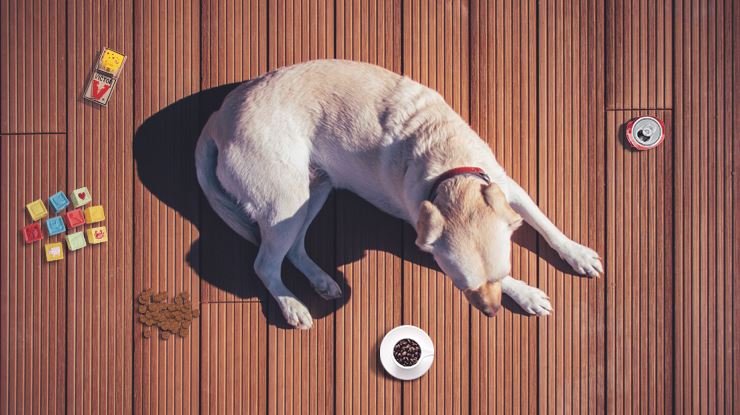
12 Household Items That Can Hurt Your Dog
While home is the one place where your dog should be safe, unfortunately that isn't always the case.
Sure, you feed him right, give him his heartworm pills, and treat him with flea and tick medicine every month—and that's all great. But, what about the dangers he might find inside the house?
If you haven't dog-proofed your home from top to bottom, there are plenty of common household objects that can pose a serious threat to your dog's health. Here are 12 everyday items that responsible owners should keep far away from their favorite little fur buddies.
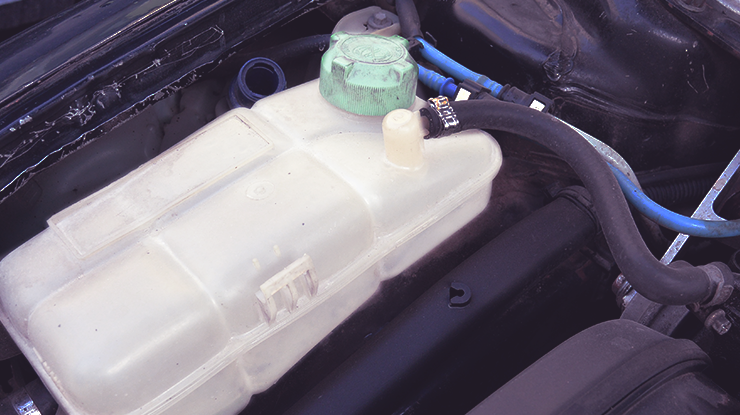
1. Antifreeze
Found in many garages across the country, this product may keep your car's engine from freezing during winter, but it will also leave your dog permanently cold if ingested. Many dogs and cats have been drawn in by the sweet taste of ethylene gylcol, but ingestion of this syrupy mix often proves fatal, first attacking the central nervous system, then the heart, followed by the kidneys. Although antifreeze manufacturers in the US voluntarily decided to add a bitter flavor to antifreeze in 2012, open containers and puddles of antifreeze left in the garage or on the driveway still pose a risk to curious pets. So, like any other toxic substance, be mindful of where you leave the container, and be sure to check for spills after use.
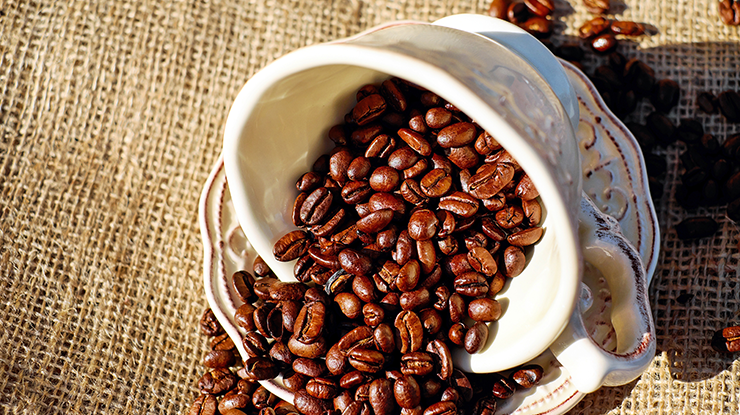
2. Human Food
Although there are plenty of human foods that are healthy for dogs, many others are downright toxic. Coffee may put a little pep in your step, but it also contains caffeine, which is harmful to dogs. Likewise, to paraphrase Julius from Pulp Fiction, dogs don't dig on swine. The fat content of pork is too rich for a dog to properly digest, and undercooked pork can cause parasite problems, such as trichinosis. And, of course, the traditional big daddy of bad dog foods is chocolate, which contains both caffeine and theobromine. If a dog eats too much chocolate, the results can be hazardous to his or her health. Also, the bones from cooked meats (poultry, beef, etc.) can also present a problem for dogs, since the dogs will be drawn in by the flavor of the meat only to end up injured by bones and bone fragments, which can create a choking hazard and lead to internal injuries.
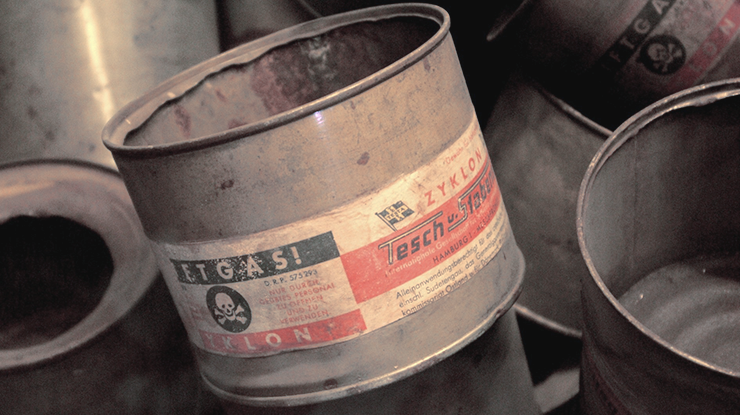
3. Insecticides
Although they may help you fight the six-legged invaders sneaking into your house, insecticides can harm dogs. Many insecticides contain concentrations of poison great enough to kill or severely sicken a dog if enough is consumed. Although there are insect killing tools designed to be non-toxic for pets, like roach traps, the traps often contain ingredients that dogs may find difficult to resist (like peanut butter). If the dog swallows the trap while trying to get to the bait, it can become a choking hazard and a digestive nightmare. When setting up insect traps, make sure to place them in areas that are out of your dog's reach.
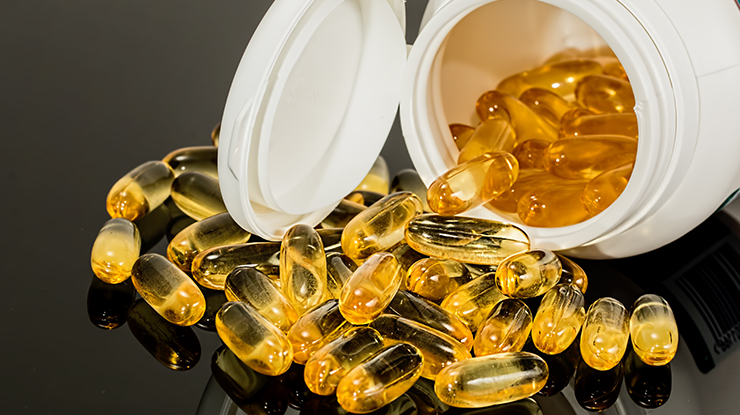
4. Medications and Other Pills
The same as it is with humans, dogs who take medicine they shouldn't can suffer a wide range of negative side-effects. Although some human medications can be given to dogs (with the approval and under the direction of a veterinarian), many can be poisonous and potentially lethal. For this reason, owners who take medication or certain health supplements should do so privately to avoid having the pills snatched up if they are accidentally dropped on the floor. Dog owners should also keep any medication prescribed to their dogs locked away in a safe place, since those meds are often flavor-coated and can be especially tempting for curious or hungry canines.
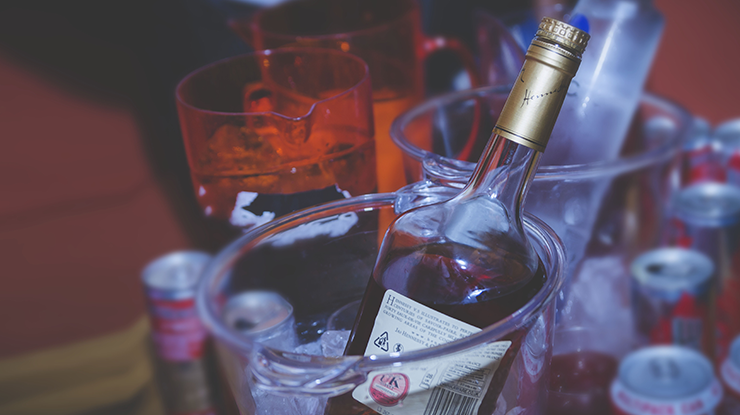
5. Alcoholic Drinks
Although some people believe it's fun or nice to offer sips of alcohol to dogs, it's actually a terrible idea. Humans have adapted over time to handle the toxicity of alcoholic drinks to some degree, but dogs have not. It only takes a little alcohol to cause problems for a dog, whether it's the immediate issue of lethal blood poisoning or the more drawn-out consequences of a compromised renal system and liver. If you feel like your dog needs to enjoy a brew, however, there are non-alcoholic versions created specifically for dogs, like the ones found at bowserbeer.com.
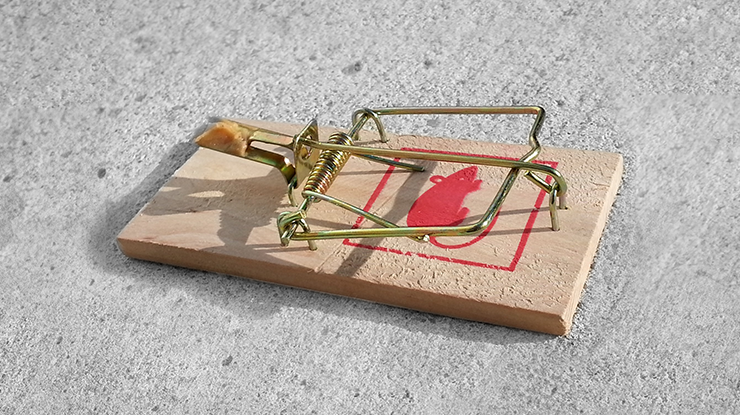
6. Mouse and Rat Traps
Like insect traps, rodent traps can be harmful and potentially deadly to dogs. What's worse, some of the crueler versions, like bar traps and glue traps, often use bait that's likely to grab a dog's attention, like cheese or peanut butter. Also, many of the pellet poisons feature bromethalin, a substance that's toxic to pretty much anything that breathes. Unfortunately, if a dog ingests rat poison, the symptoms may not develop until up to two weeks later, so make sure that your dog never has access to any anti-rodent poisons or traps in your home.
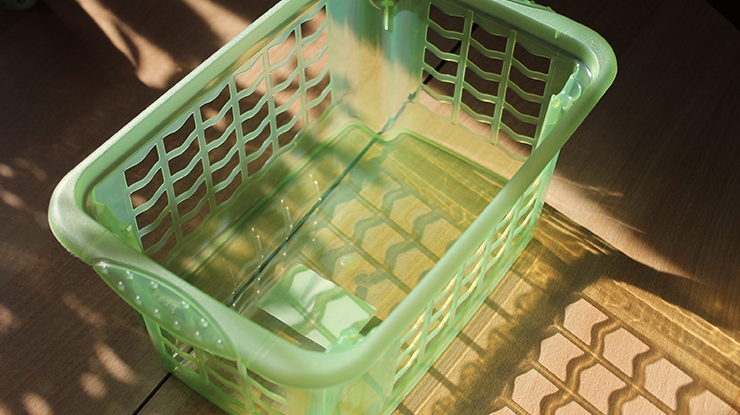
7. Dryer Sheets
Strangely, many pet parents have reported that their dogs can't seem to get enough of dryer sheets. They pick them up with their mouths, tear them to shreds, and, in some cases, scarf them down. Keep dryer sheets out of your pooch's paws, since most contain a variety of toxic chemicals that become even more pungent after the sheet has been tumbling around in a hot dryer. These chemicals can cause skin and respiratory problems with exposure, but dryer sheets are especially dangerous if consumed. Not only is the sheet itself a potential choking hazard, but it also means your dog's body will be absorbing an awful mix of carcinogens and toxins. If you believe your dog has ingested a dryer sheet, induce vomiting immediately and call a vet.
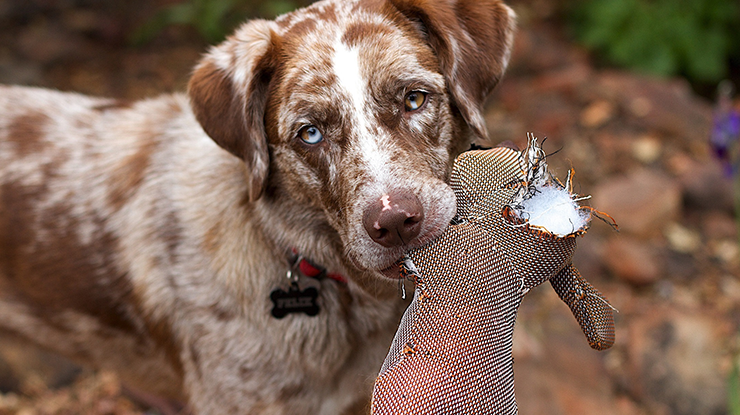
8. Children's Toys
It's already bad enough that your child's abandoned toys leave the floors booby trapped, but things get much worse when your dog uses his or her jowls to clean them up. Obviously, it isn't healthy to eat plastic. However, it may be an even bigger problem if the dog can't swallow the toy and begins to choke. If the dog does manage to swallow a hunk of plastic, serious digestive issues can develop that will likely require surgery. So, for the sake of your dog and your feet, make sure your kid's toys are always packed away after use.
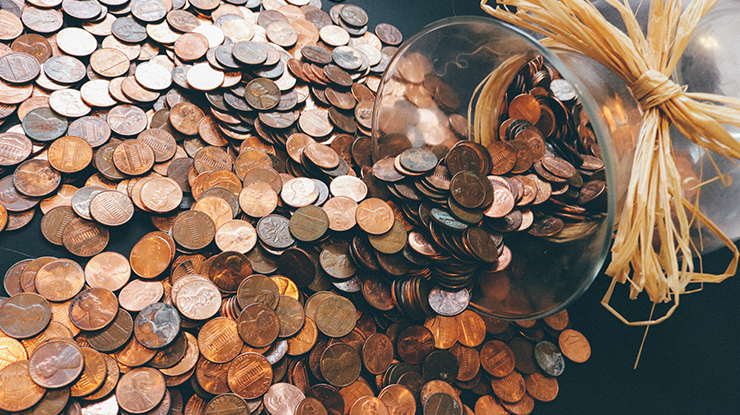
9. Zinc
The consumption of heavy metals can wreak havoc on a dog's body, and zinc is definitely one to watch out for. In the early 1980s, pennies made the switch from copper coins to copper-plated zinc, and the transition was not an easy one for dogs. Ingestion of pennies caused zinc toxicosis in dogs, resulting in vomiting, lethargy, diarrhea, anemia, kidney problems, and jaundice. Protect your dog as you would a small child, which means keeping small, inedible items out of reach. Additionally, zinc is also found in many nuts, bolts, and nails, so it's a good idea to keep your dog away from any structures where renovations are being made.
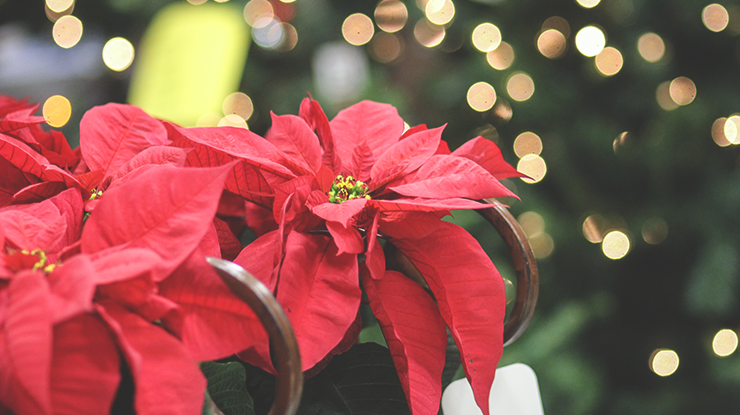
10. Plants
What do daffodils, buttercups, Easter lilies, and poinsettias all have in common? Well, aside from making your garden look great, they are also plants that can make your dog very sick. In fact, there are so many common but potentially poisonous plants for dogs that, instead of making a list, we would advise dog owners who intend to garden to look up the toxicity of any plants they intend to grow before buying them. Additionally, some products involved in gardening, such as cocoa-scented mulch, can also be tempting and deadly to the curious pups, so pet owners who wish to garden need to be especially careful when it comes to what they want to grow and how they choose to protect their pets from the hazards a garden can pose.
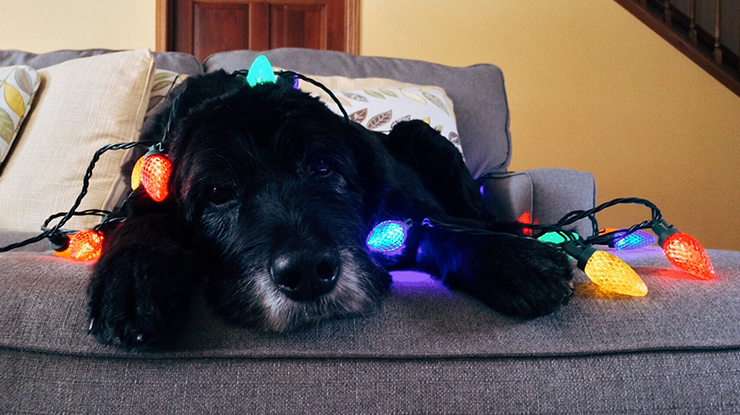
11. Decorations
While festive decorations can transform your home for the holidays, they can also be dangerous to dogs. For instance, holly berries and mistletoe, which are both popular decorations during the Christmas season, will poison a dog if consumed. Similarly, if your dog’s sweet tooth gets the better of him, he might do his best Godzilla impression and demolish that gingerbread house you spent so much time on (and after his stomach does its own Godzilla impression, the vomiting and diarrhea that follows will definitely put a damper on everyone else’s holiday spirit). Regardless of whether it’s Christmas or any other holiday, be especially mindful of the decorations you choose to put up in your house, and be vigilant in keeping your dog from getting into mischief with them.
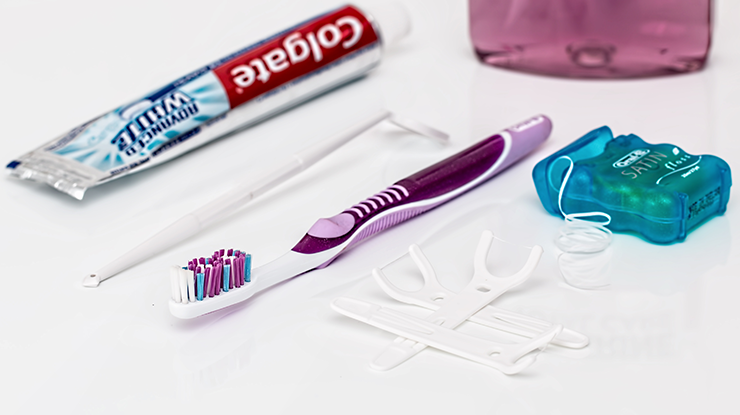
12. Dental Floss
It might seem like a strange item to add to the list, but the health issues dental floss can cause for dogs are no joke. Dental floss is something we commonly use and discard in our everyday lives, which makes it easy to forget that it poses a real risk to curious dogs. Some dogs will eat just about anything that catches their attention, but dental floss can be especially enticing when it is coated in mint and cinnamon flavors. Floss can cause choking, suffocation, intestinal blockage, and other damage to the digestive system. Make sure to keep all new and discarded dental floss in a place that’s inaccessible to pets, and if your dog does swallow any, call your vet as soon as possible.











